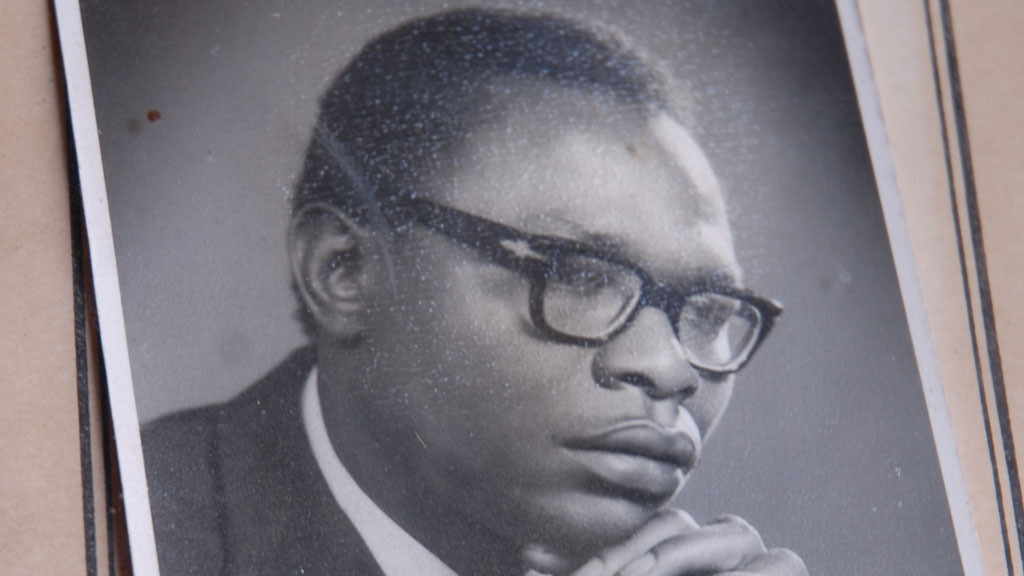Obama visits Britain (George Obama, that is)
Barack Obama’s half-brother George is in Britain to promote a play about his experiences as a Kenyan gangster who turned his life around.
Obama, the Mamba – President of the Slums tells the story of a man whose privileged upbringing came to an end when his mother and step-father split up, leading to a life of crime on the streets and in the ghetto.
Based on George’s memoirs, Brother, it is being staged at the Curve Theatre, in Leicester, and the Lowry, in Salford, from 12-20 October.
The play is written by Kevin Fagan, who visited him in the Mathare slum in Nairobi, where George (above) works to improve the lives of young people.
It is a tribute to a man who agreed to appear in a documentary, 2016: Obama’s America, that is critical of Barack Obama.
What is intriguing is that when George is asked in the film if the US president should have helped him, he says Barack has his own family to look after; he does not rise to the bait.

Picture: George Obama
Brother, co-authored by veteran foreign reporter Damien Lewis and published this year, is George Obama’s life story.
It details how the father he and Barack shared, Barack Obama Senior (pictured above), died when he was six months’ old, after which he was brought up by his mother and a white French aid worker in a plush Nairobi suburb.
He was sent to boarding school, but after his mother and step-father separated when he was 15, George dropped out of education and starting drinking and smoking cannabis.
A life of crime and gangs followed, with George acquiring the street name “the Mamba” – Swahili for crocodile – because of his fighting skills.
Car-jacking
The street led to a Nairobi ghetto, where his criminal lifestyle took off, car-jacking wealthy Kenyans and fighting running battles with the police.
Despite the dangers, George felt he had found a community where he belonged and that accepted him.
When he was 20, George and three fellow gangsters were arrested for a violent crime they did not commit and were thrown into prison. What he learned at his English-style public school helped him mount a successful defence in court and he and his gang colleagues were released.
After jail, he became a community organiser in the slums, mirroring the work Barack carried out in the Chicago ghetto when he was a young man.
Met Barack
He was shunned by his family, but went on to meet Barack during his visit to Kenya before the US presidential elections (he had first met him when he was five).
He says he was inspired by him to help the slum dwellers he lives with: “My brother has risen to be the leader of the most powerful country in the world. Here in Kenya, my aim is to be a leader amongst the poorest people on earth – those who live in the slums.”
After Barack became president, George became known as “the president of the slums”, his dream to found a ghetto football team.
This came to pass and when Damien Lewis met George and proposed to write his life story, the money earned helped propel Huruma – Swahili for mercy – to the top of the Nairobi super league.
-
Latest news
-
Boy with profound learning disabilities reaches out of court settlement after abuse in residential school7m

-
India election: Modi rivals hit by string of raids and arrests7m

-
Can UK’s abandoned mines be used to build a greener future?5m

-
Sycamore Gap: Man pleads not guilty to felling iconic tree2m

-
‘Child poverty has not fallen since Tories came in’, says Gordon Brown5m

-




